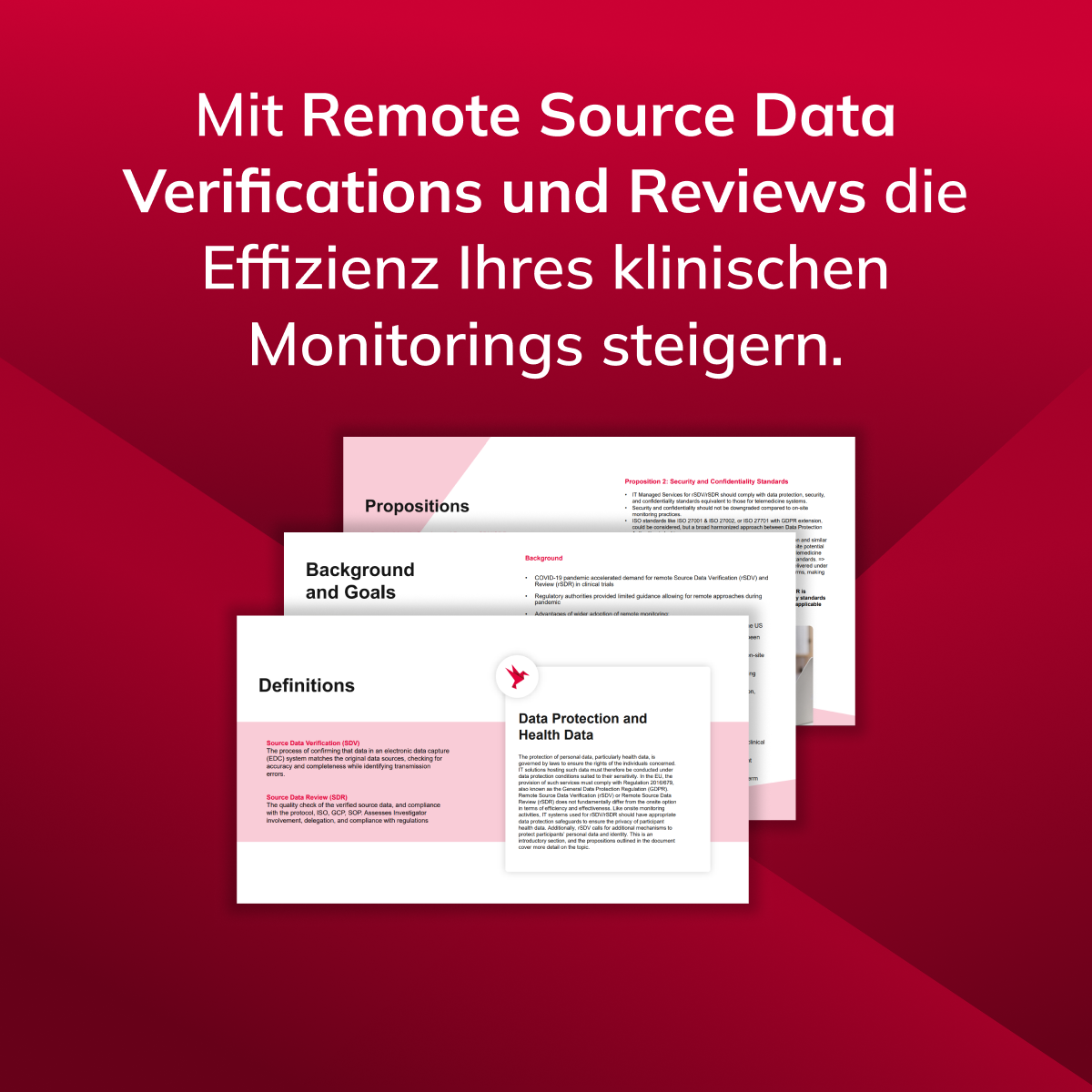How Pneumology Studies Benefit from Digitalization
Erstellt am: 25.07.2021
Patients with lung and respiratory diseases increasingly benefit from digital and mobile technologies that offer new ways to collect and use health data. Through the use of Alcedis Platforms, sponsors and study sites gain access to real-world insights from patients' daily lives. This decentralized approach adds measurable value to clinical research in the field of pulmonary medicine.
Wearables: Digital Data in Pulmonary Clinical Studies
Wearables and smartphones are part of many patients' daily routines. By using these tools in combination with artificial intelligence and machine learning, clinical trials can now monitor patients with chronic respiratory diseases remotely.
Integrated microphones, for instance, record coughing and breathing sounds in real time. These technologies analyze data patterns using algorithms that detect changes in cough frequency and intensity—valuable signals for clinical teams.
-
Beyond audio, mobile sensors also capture metrics such as:
-
Heart rate
-
Body temperature
-
Physical activity (steps, exercise, movement)
These data points, when combined with environmental data (e.g., air quality or pollen levels) and patients' medical history, enable clinical research to better assess how a drug or intervention impacts individual health. This level of detail is especially important in decentralized clinical studies (DCTs), where real-time access to remote data supports timely intervention and adaptive trial design.
Neues Whitepaper
Inhaler Add-ons: Supporting Medication Adherence in DCTs
Many patients with chronic respiratory diseases take their medicine via inhalers. In digital clinical studies, adherence—the consistent and correct use of medication—is crucial. Add-on devices or integrated counters track inhaler use and dosage.
If these devices are connected to a mobile app, they send data directly to the trial site. In case of missed doses, the study team is alerted immediately. Interventions may include:
-
Push notifications reminding patients to take their medicine
-
Instructional videos on correct inhaler use
By using these technologies, clinical trials gain more reliable data on adherence, allowing them to differentiate between lack of drug efficacy and incorrect usage. This strengthens study outcomes and ensures better guidance for participants.
Sleep Tracking: Remote Monitoring Made Simple
Respiratory conditions like COPD often require overnight hospital visits to monitor breathing, heart rate, and movement during sleep. However, decentralized and digital clinical studies (DCTs) can now access this information using remote technologies, reducing burden for both patients and sites.
Whether through a wearable smartwatch or a contactless sensor placed on a bedside table, mobile and radar-based systems collect sleep data such as:
-
Breathing patterns
-
Heart rate
-
Sleep duration
-
Body movement
These technologies automatically analyze the collected data using AI and machine learning to evaluate a patient’s health status. The data is sent in real time to the respective clinical site, ensuring continuous access to the patient's condition.
This allows clinical trials to detect early signs of deterioration—like worsening respiratory function—and avoid unnecessary hospitalizations. It also enables documentation of long-term therapy effects in real-world settings.
To further increase the value of such digital clinical research, sleep tracking can be combined with other remote metrics, such as inhaler usage or environmental exposures. By integrating multiple data sources, DCTs deliver deeper insights into patient behavior and treatment outcomes—unlocking the full potential of decentralized studies in pulmonary medicine.
Digital Solutions for the Future of Pulmonary Research
By combining smart technologies, AI-driven analytics, and decentralized trial models, Alcedis Platforms provide scalable solutions for next-generation clinical studies. These approaches support more inclusive participant engagement, faster access to high-quality data, and more flexible study conduct—all while maintaining the highest standards of data protection and compliance.
In an evolving digital health landscape, our expertise in DCTs and our commitment to technological innovation offer sponsors and CROs the guidance they need to navigate future trialschallenges—from planning to execution.


